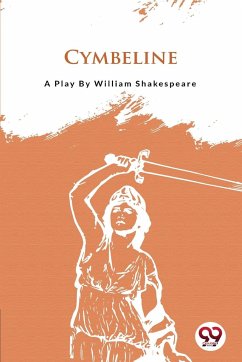Cymbeline, otherwise called Cymbeline, King of Britain, is a play by William Shakespeare set in Ancient Britain and in light of legends that framed a piece of the Matter of Britain concerning the early Celtic British King Cunobeline. Albeit recorded as a misfortune in the First Folio, current literary enthusiasts frequently call Cymbeline a sentiment or even a parody. Like Othello and The Winter's Tale, it manages the subjects of blamelessness and envy. While the exact date of the structure stays obscure, the play was created as soon as 1611. Cymbeline, the Roman Empire's vassal ruler of Britain, once had two children, Guiderius and Arvirargus, however, they were taken twenty years sooner as babies by a banished deceiver named Belarius. Cymbeline presently finds that his lone youngster left, his little girl Imogen (or Innogen), has subtly hitched her darling Posthumus Leonatus, a generally good man of Cymbeline's court. The sweethearts have traded gems as tokens: Imogen now with an armband, and Posthumus with a ring. Cymbeline denies the marriage and exiles, Posthumus, since Imogen, as Cymbeline's lone kid, should create a completely regal blooded beneficiary to prevail to the British lofty position. Meanwhile, Cymbeline's Queen is plotting to have Cloten, her cloddish and pompous child by a prior marriage wedded to Imogen, to get her bloodline. The Queen is likewise plotting to kill both Imogen and Cymbeline, securing what she accepts to be a lethal toxic substance from the court specialist, Cornelius, who, dubious, switches the toxin with a sleeping chemical. The Queen passes the "poison" along to Pisanio, Posthumus and Imogen's caring worker, who is persuaded to think it is a restorative medication. At this point not ready to be with her expelled Posthumus, Imogen segregates herself in her chambers, away from Cloten's forceful advances. Posthumus now resides in Italy, where he meets Iachimo (or Giacomo), who challenges the prideful Posthumus to a bet that he, Iachimo, can lure Imogen, who Posthumus has adulated for her purity, and afterward bring Posthumus proof of Imogen's infidelity. Assuming Iachimo wins, he will get Posthumus' symbolic ring. In the event, that Posthumus wins, not exclusively should Iachimo pay him but will battle him in a duel with blades. Iachimo heads to Britain where he forcefully endeavors to allure the loyal Imogen, who boots him out. Iachimo then stows away in a chest in Imogen's bedchamber and, when the princess dozes off, he arises to take Posthumus' wristband from her. He likewise observes the room and Imogen's incompletely exposed body to have the option to introduce misleading proof to Posthumus that he has enticed his lady. Getting back to Italy, Iachimo persuades Posthumus that he has effectively enticed Imogen. In his anger, Posthumus sends two letters to Britain: one to Imogen, advising her to meet him at Milford Haven, on the Welsh coast; the other to the worker Pisanio, requesting him to kill Imogen at the Haven. Notwithstanding, Pisanio won't kill Imogen and uncovers her Posthumus plot. He has Imogen mask herself as a boy and proceed to Milford Haven to look for work. He additionally gives her the Queen's "poison," accepting it will lighten her mental misery. In the pretense of a boy, Imogen takes on the name "Fidele," signifying "unwavering."Two arrangements of twins are isolated upon entering the world by a tempest adrift: a couple of bosses (both named Antipholus) and a couple of workers (both named Dromio). Years after the fact, the Antipholus-and-Dromio pair brought up in Syracuse end up visiting Ephesus, where the individual twins dwell - giving the premise to progressing occurrences of mixed-up personality, inside an energetic plot of fights, captures, and an excellent court result.
Hinweis: Dieser Artikel kann nur an eine deutsche Lieferadresse ausgeliefert werden.
Hinweis: Dieser Artikel kann nur an eine deutsche Lieferadresse ausgeliefert werden.









